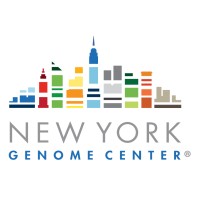
Evan Geller
Scientist, Functional Genomics at Immunai- Claim this Profile
Click to upgrade to our gold package
for the full feature experience.
Topline Score


Bio


Experience
-
Immunai
-
United States
-
Biotechnology Research
-
1 - 100 Employee
-
Scientist, Functional Genomics
-
Apr 2022 - Present
Leading projects involving high-throughput gene editing and genomic technology development, with the goal of evaluating targets for next-generation immunotherapy. Leading projects involving high-throughput gene editing and genomic technology development, with the goal of evaluating targets for next-generation immunotherapy.
-
-
-
New York Genome Center
-
United States
-
Biotechnology
-
100 - 200 Employee
-
Postdoctoral Research Associate in the Laboratory of Dr. Neville Sanjana
-
Feb 2020 - Mar 2022
High-throughput CRISPR screening research and development, RNA-targeting CRISPR studies, and expertise in single cell profiling. High-throughput CRISPR screening research and development, RNA-targeting CRISPR studies, and expertise in single cell profiling.
-
-
-
Yale University
-
United States
-
Higher Education
-
700 & Above Employee
-
Ph.D. Candidate in Genomics
-
2013 - 2019
Changes in gene regulation have been linked to the expansion of the human cerebral cortex and to neurodevelopmental disorders. However, the biological effects of genetic variation within developmental regulatory elements on human corticogenesis are not well understood. We used sgRNA-Cas9 genetic screens in human neural stem cells (hNSCs) to disrupt 10,674 expressed genes and 2,227 enhancers active in the developing human cortex and determine the resulting effects on cellular proliferation. Gene disruptions affecting proliferation were enriched for genes associated with risk for human neurodevelopmental phenotypes including primary microcephaly and autism spectrum disorder. Although disruptions in enhancers had overall weaker effects on proliferation than gene disruptions, we identified enhancer disruptions that severely perturbed hNSC self-renewal. Disruptions in Human Accelerated Regions and Human Gain Enhancers, regulatory elements implicated in the evolution of the human brain, also perturbed hNSC proliferation, establishing a role for these elements in human neurodevelopment. Integrating proliferation phenotypes with chromatin interaction maps revealed regulatory relationships between enhancers and target genes that contribute to neurogenesis and potentially to human cortical evolution. Show less
-
-
-
Yale University School of Medicine
-
United States
-
Research Services
-
700 & Above Employee
-
Teaching Fellow
-
2015 - 2016
◆ GENE 760: Genomic Methods for Genetic Analysis Organized hands-on learning activities for class discussion sections that encouraged group participation and fostered a team-based approach to problem-solving exercises. Mentored students in person during office hours and via online platforms (such as Piazza) by responding to questions and providing detailed feedback for weekly and final projects. ◆ GENE 760: Genomic Methods for Genetic Analysis Organized hands-on learning activities for class discussion sections that encouraged group participation and fostered a team-based approach to problem-solving exercises. Mentored students in person during office hours and via online platforms (such as Piazza) by responding to questions and providing detailed feedback for weekly and final projects.
-
-
-
University of Pennsylvania School of Medicine
-
Higher Education
-
700 & Above Employee
-
Research Specialist
-
2008 - 2013
Performed whole-exome sequencing and analysis on hundreds of families with the goal of identifying new autism risk genes. De novo mutations occurring in autism subjects were validated by Sanger sequencing and found to be enriched for genes encoding chromatin remodeling proteins. Performed whole-exome sequencing and analysis on hundreds of families with the goal of identifying new autism risk genes. De novo mutations occurring in autism subjects were validated by Sanger sequencing and found to be enriched for genes encoding chromatin remodeling proteins.
-
-
Education
-
2015 - 2019

Yale University
Doctor of Philosophy (Ph.D.), Genomics -
2013 - 2015

Yale University
Master of Philosophy (M.Phil.), Genetics -
2004 - 2008

Allegheny College
Bachelor of Science (B.S.), Biochemistry
Community










